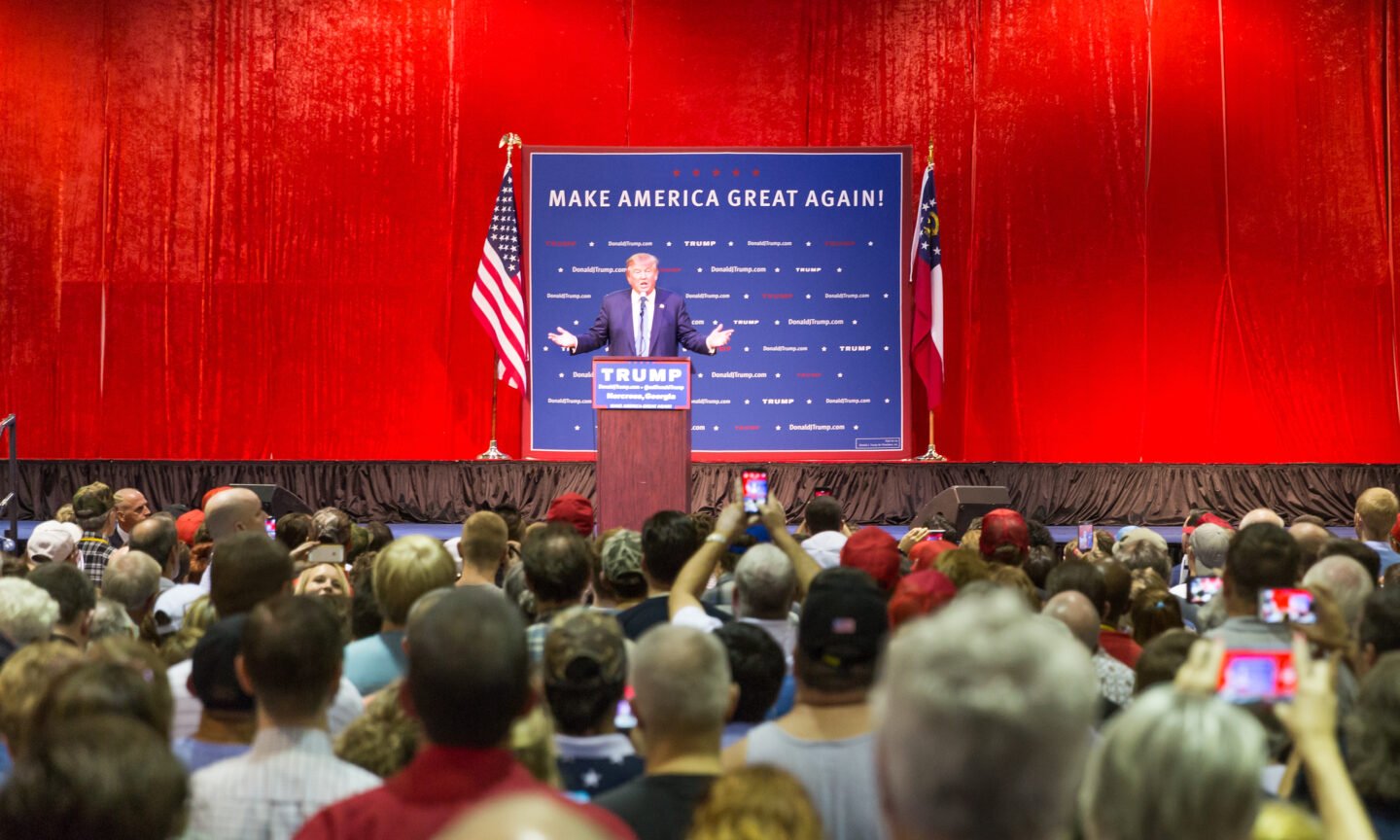President-elect Donald Trump made many promises to voters on the campaign trail, but it’s unclear how many of those will cross the bureaucratic finish line. With the Republican party securing a majority stake in both chambers of Congress for the first time since 2019, Trump’s agenda may stand a better shot of becoming reality.
Here are some of the proposals that may have the biggest impacts on small-business owners across the U.S.
Raising tariffs on imported goods
Trump wooed economy-anxious voters by focusing a lot of his campaign messaging around fortifying the economy and putting more dollars in Americans’ pockets. One of the ways he says he plans to do this is by imposing a 10% to 20% tariff on all imported goods coming into the U.S., a 60% tariff on goods coming from China and 25% or higher tariffs on Mexican imports.
As president, Trump will likely have the authority to follow through with his proposed tariffs, but Congress may be able to step in to curb his efforts.
What experts say this might mean for small businesses:
-
“Made in America” companies could come out ahead. Small businesses that produce and sell goods wholly made in the U.S. stand to benefit from this proposal, according to the Tax Foundation, a nonpartisan nonprofit.
-
Other businesses may have to pass the buck. Businesses that rely on imported products, parts or materials will have to choose between absorbing the tax themselves or passing it onto consumers. Many studies found that tariffs levied during Trump’s first term drove up costs for both American businesses and individuals.
-
Counter tariffs pose a potential threat. When one country imposes tariffs on another, they’re often met with retaliatory tariffs. If the U.S. imposes blanket tariffs on all imports and other countries respond in kind, businesses may have a harder time exporting goods.
Expanding tax cuts for small businesses
During his first term in office, Trump passed the Tax Cuts and Jobs Act, which reduced the tax burden on businesses. Trump has promised to extend provisions in the original bill that are set to expire in 2025, such as the qualified business income deduction, which allows business owners of pass-through entities to deduct up to 20% of qualified business income from their taxes.
He’s also pledged to lower the corporate income tax rate from 21% to 20% (15% for corporations that make their products in the U.S.), and has proposed eliminating taxes on tips and overtime pay.
What experts say this might mean for small businesses:
-
Small-business owners will feel some relief. The 2017 Tax Cuts and Jobs Act was well-received by small-business owners, with overwhelming support for the qualified business income deduction, according to the National Federation of Independent Business, a nonprofit, nonpartisan advocacy group. Extending these tax breaks would keep the door open for growth and innovation for many small businesses in the U.S.
-
Service businesses might retain more workers. Service-based industries where workers rely heavily on tips, such as restaurants and hotels, often struggle to keep employees. By not having to pay taxes on tips received or overtime wages, workers may be more inclined to stay in these jobs. In addition, wage-based service businesses may be prompted to adopt a tip-based compensation system of their own, according to the Tax Foundation.
Mass deportation of undocumented immigrants
Trump has promised to “carry out the largest deportation operation in American history” by tightening the border, increasing penalties for illegal entry into the U.S. and repatriating millions of people residing in America unauthorized.
Trump can direct federal agencies like the Department of Homeland Security to carry out his deportation agenda via executive orders. But mass deportation requires considerable resources and will likely face scrutiny in court. While Trump made similar promises during his first run as Commander-in-Chief, he deported fewer people per year than former President Barack Obama, and was roughly on-par with the deportation rates under President Biden.
Still, there are early signs that the incoming Trump administration plans to follow through on their deportation promises. Trump’s newly appointed “border czar” Tom Homan has indicated interest in resuming immigration crackdowns in workplaces, a practice that ended in 2021.
According to Pew Research Center’s analysis of the Bureau of Labor Statistics data, unauthorized immigrants made up close to 5% of America’s workforce in 2022, the most recent year for which this data is available.
What experts say this might mean for small businesses:
-
America’s labor market could take a hit. With many undocumented immigrants working in construction, manufacturing and agriculture, business owners in these industries may face a tougher labor market, according to the Brookings Institution, a nonprofit, nonpartisan research organization. This is especially true for businesses in states like Nevada, Texas, Florida and California, where the share of unauthorized immigrants is highest.
-
Some employers could be in hot water. Businesses caught knowingly employing unauthorized immigrants may face legal consequences, such as fines, imprisonment or losing their business license.
Cutting through the red tape
Trump has called for slashing government regulations for businesses and reversing certain guardrails set by the Biden administration. However, regulations are hard to dismantle. During his first term in office, while Trump added far fewer new regulations than previous presidents, many of his deregulatory orders were struck down in court.
But the president-elect has made it clear that deregulation will be a central theme throughout his second term in office. In fact, he has already tapped fellow entrepreneurs Elon Musk and Vivek Ramaswamy to lead a newly proposed Department of Government Efficiency.
What experts say this might mean for small businesses:
-
Heavily regulated industries may catch a break. Small businesses in heavily regulated industries, such as energy, tech and finance may experience fewer administrative costs and restrictions, according to Morgan Stanley.

